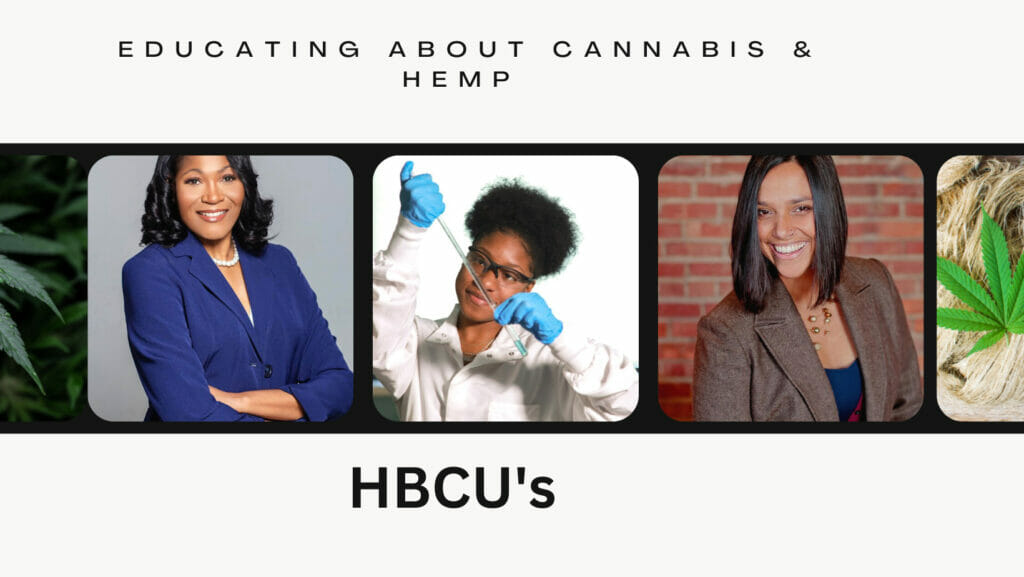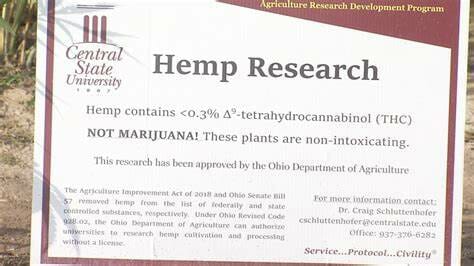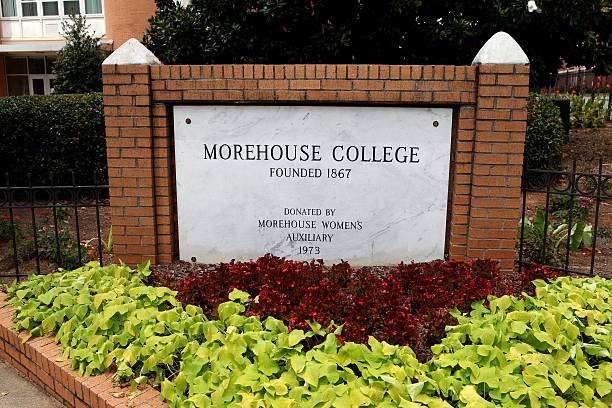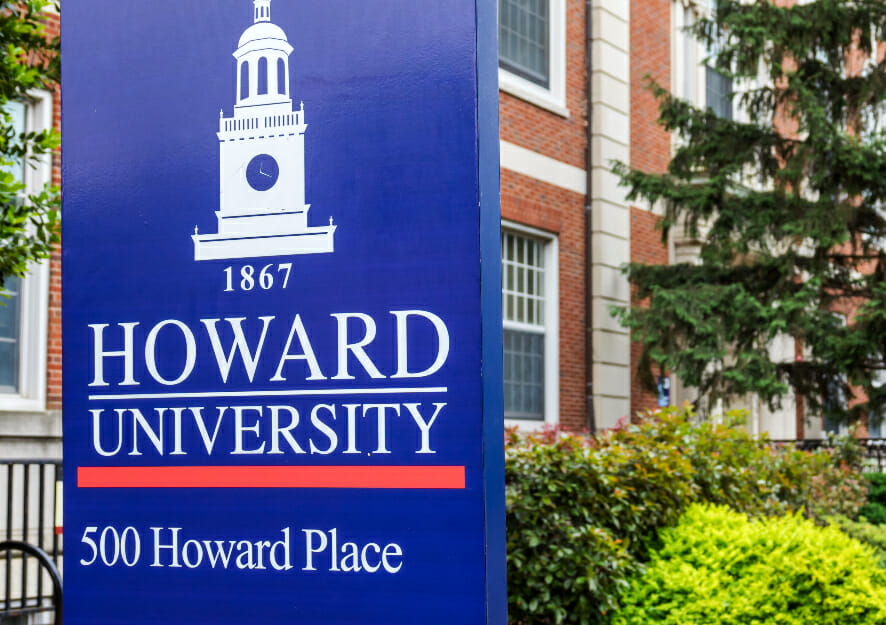
Diversity matters in every industry, but in the fast-growing cannabis field, it’s important that people in underserved and underrepresented communities who previously bore the racial impact of cannabis’ illegal status, are now part of this booming space.
Several barriers to entry in the cannabis industry remain since a 2017 study done by Marijuana Business Daily highlighted that only two out of 10 businesses belong to people of color
Nationwide, a growing number of colleges, universities, and schools are offering courses in the cannabis industry. Some offer degrees and others offer certifications, but all of them are aimed at helping the canna-curious to gain an advantage in the cannabis industry.
Programs vary greatly with focuses ranging from the business side of operations to growing and cultivating marijuana plants. Courses prepare people for roles like cannabis consultants, grow masters, extraction technicians, and dispensary operators.
The shift in higher education makes sense. The curriculum should evolve in order to help prepare people interested in being in one of the world’s fastest-growing industries. But similar to the cannabis industry at large more efforts need to be made to address the lack of diversity in educational programs.
Similar to more states taking an active role in trying to level the playing field with social equity programs and funding, I decided to check in with some people who are making a difference at historically black colleges and universities.
Brandy Phipps, is an assistant professor doing nutrition and health research in the Agriculture Research Development Program at Central State University. The U.S. Department of Agriculture awarded CSU in Wilberforce, Ohio a $10 million grant to research the potential of hemp to address certain food safety and sustainability issues. The award is part of $146 million the USDA is handing out to boost sustainable agriculture systems (SAS). Central State is the only university in Ohio and the only historically Black college or university (HBCU) to receive an SAS grant.



You currently have several hemp projects happening at CSU. Can you tell me why your university was selected and what types of student majors are involved in the projects?
We do have several hemp projects happening at CSU, including a USDA Sustainable Agriculture Grant investigating the use of hemp grain as a feed ingredient for aquaculture (most often referred to as the SUSHI project), an FDA contract investigating the chemical compounds in smoked and vape hemp products, a grant specifically to fund workforce training in the hemp space, and a project investigating the effect of manure application on hemp performance and soil/water quality. While I can’t speak to exactly why funding agencies chose our institution to perform this work, I am proud of the transdisciplinary team we have doing hemp research here at Central State. Dr. Craig Schluttenhofer has been working with the plant since 2014 when it was first approved for research in the Farm Bill. He brings a broad set of skills including agronomy, plant chemistry, breeding, and genetics. I have a background in biomedical sciences and nutrition, so I am interested in the safety and potential health/nutrition impacts of hemp flower and grain. Dr. Sakthi Kumaran Subburayalu, a soil scientist, is working with Dr. Schluttenhofer on the hemp manure project. As our hemp program at CSU continues to grow, I am sure will be partnering with researchers from other disciplines as well.
The great thing about the hemp industry is that it needs people from all different disciplines with different skill sets. You need accountants, marketing people, growers, chemists, engineers, etc. In that same way, we have students from all different majors that have participated in our hemp projects, including those in biology, exercise science, business, accounting, manufacturing engineering, computer science, sustainable agriculture, environmental engineering, and water resources management. I really enjoy seeing the students with different skill sets and seeing how their knowledge has real-life applications, and I am thrilled to consistently see these students learning from one another during the research process.
What do you enjoy most about your roles at CSU?
As a 50/50 faculty member, I have 50 percent of my time and effort assigned to academics in the Department of Agricultural and Life Sciences and 50 percent of my time and effort assigned to research under the Agricultural Research Development Program at Central State. I enjoy my split appointment because it allows me to do all the things that I am passionate about. I am passionate about my research which – while heavy with hemp work right now – is more broadly about the intersection of climate change, nutrition/health equity, and food systems transformation.
What I enjoy most, though, is anything that allows me to interact with students and community members. At my core, I am an educator. I love knowledge; I love sharing knowledge; I love learning from others. So, my role at CSU allows me to both gain knowledge through research and community engagement and to pass that knowledge to others (students, other community members, policy-makers, other scientists, and educators) in what I hope are authentic and impactful ways. I get to interact with students every day – in the classroom, in my research where they are paid research assistants, during advising sessions, in student organizations where I serve as a faculty advisor, or just in the hallways and recreation spaces. As I tell my students on a regular basis – they are “the best part of every day for me at CSU.”
Second, only to my student interactions are the opportunities I have to interact with community stakeholders. Whether I am working with a community to support their food sovereignty efforts; moderating a social equity panel at the Ohio Cannabis Health and Business Summit; standing in a field talking about hemp during the Black Farmer’s Tour, judging student projects for Ohio Science Day, or participating in community film screenings about Black and Indigenous farming and land loss – those moments consistently “fill me up” and remind me exactly why I chose to join Central State and do this work.
A growing number of colleges and universities are offering courses, certifications, and degrees in the marijuana, CBD, and hemp industries, are you encouraged by the continual recent changes that encourage college students to explore options in this industry?
I am always encouraged by the expansion of opportunities for students. As I mentioned before, there is a need for a diverse set of backgrounds, knowledge, and skills to build and sustain the industry. Providing a wide variety of learning options – individual courses, certificates, or undergraduate and graduate degrees – for people to learn about cannabis and see where they might fit within the industry is important. I would also encourage the industry – whether individual companies or as a group – to partner with educational institutions, like Central State, to create official pathways for students to enter the industry. This could include creating advisory boards with industry members to help guide curriculum development, as well as expanding internships or other practicum opportunities for students in cannabis programs. I hope to see an increase in these strategic partnerships that will benefit the industry and the workforce.



Dr. Hemant Kumar Bid, Ph.D. MS. is a top educator in the cannabis field. He’s an assistant professor and program director at the Morehouse School of Medicine. As a program director of MSBT-MCT (Medical Cannabis Therapeutics) online education program, a faculty member at both St. Louis University and the Cleveland School of Cannabis, Dr. Bid uses his extensive background in cannabinoid research to educate cannabis and medical professionals and infuse the industry with science-backed legitimacy. He has lectured nationally and internationally on how medical cannabis affects the body and how it is used to treat illnesses from a neuroscience perspective.
A growing number of colleges and universities are offering courses, certifications, and degrees in the marijuana, CBD, and hemp industries. Are you encouraged by the continual recent changes that encourage college students to explore options in this industry?
It’s very exciting to watch this growing field overall, specifically cannabis education. Educating the next generation about various aspects of cannabis will definitely increase the quality of science, quality products, and awareness, reducing the stigma, and better treatment options. What we need is to involve experts from various parts of the cannabis industry (dispensaries, cultivation, testing, etc,) to incorporate real-time hands-on experience in the curriculum. As we all know this is the fastest-growing industry, but it’s still at the nascent stage, therefore as a new industry, we are all learning every day from our experiences and mistakes. The future holds big promise for medical marijuana to be a part of current medical practices, which definitely require a quality scientific data-driven education package for creating quality leaders for this growing industry.
What do you enjoy most about your role at Morehouse College?
I like working at Morehouse School of Medicine (MSM) because this institution is committed to the mission of improving the health and well-being of individuals and communities by increasing the diversity of health professionals and the scientific workforce. This college addresses primary healthcare through programs in education, research, and service with an emphasis on people of color and the underserved urban and rural populations in Georgia, the nation, and the world.
Furthermore, the Office of Online Education and Expanded Programs (OEEP) is charged with the leadership and coordination of MSM online education programs and courses by providing high-quality learning opportunities in the Biotechnology and Medical Cannabis fields that leverage the use of various technologies to ensure that students are: 1.) prepared for current and emerging careers; 2.) empowered to serve community stakeholders; and 3.) aware of the factors that impact and promote health equity. The office advances the MSM mission by extending learning opportunities to students without the restrictions of geographical location or time.
Can you share what your students are interested in doing in the cannabis field after graduation?
It’s a very interesting question. All our students are coming from various backgrounds. Today, cannabis is the fastest-growing industry in America, adding thousands of jobs across the nation every year. The cannabis industry has many different options when it comes to choosing your career path, allowing our student’s ample opportunities to get into the industry in cannabis compliance, accounting, lab testing, extraction, cultivation, packaging, marketing, entrepreneurship, and many more areas.


Michelle Wilson, manager of education, training, and community engagement for the Florida A&M University Medical Marijuana Education and Research Initiative. The goal of the program at the research institution is to educate and inform Florida’s minority communities about medical marijuana and the potential consequence to health and well-being from recreational use. Wilson coordinates statewide outreach initiatives by collaborating with partners, community members, community leaders, and subject matter experts.
What is the FAMU Medical Marijuana Education and Research Initiative?
When the Florida Medical Marijuana Law passed, the Legislature authorized FAMU to educate diverse and multicultural communities statewide. FAMU is well suited for this mandate due to its historical role in educating diverse student populations. MMERI operates under the following mandate from the Florida Legislature:
“Education Florida’s diverse communities about medical marijuana and the impact of the unlawful use of marijuana on diverse and multicultural communities.”
How does MMERI carry out its mission?
MMERI uses a three-pronged approach: Education, Community Engagement, and Communications. All three prongs work in tangent to provide a cohesive education campaign. For example, we educate about the use of lawful and unlawful marijuana through community engagement, our online learning management system, and through our many partners throughout the state in radio, TV, print media, etc.
What is the educational initiative?
We are excited about the launch of MMERI ON DEMAND, an online learning experience that includes many topics. The topics are related to the use of marijuana, its history, how to obtain a medical marijuana card in Florida, how to operate in a dispensary, and so many more topics that once in the system, you will want to stay there for a while and at least browse.



Lenny Berry, founder of the Ohio Cannabis Health & Business Summit recently participated in a cannabis forum at Howard University that involved college students, professors, the general public, cannabis entrepreneurs, and legislators. Discussions ranged from understanding the history of cannabis and how people of color are impacted, to opportunities in the fast-growing cannabis industry.
What did you enjoy most about participating in Howard University’s recent cannabis event?
I enjoyed being in the building with talented panelists, students and community members.
The event was created to interact with everyone regarding their interest in the cannabis space. I enjoyed answering questions about the financial stability of the industry, the best ways to find jobs, investment opportunities, and how to open businesses in and around the industry.
We also had some great discussions about the health benefits of the plant.
Did anything unexpected happen?
Yes, I didn’t expect to see the vast generational gap in attendance. I assumed we would have a ton of students but the attendance was very diverse.
It was inspiring to be around people who were very well-versed in the industry. Many of the speakers were Howard graduates who started businesses and created organizations to empower the younger generation to enter into cannabis. I was impressed because they are young professionals in leadership roles and some owned their own businesses.
Did you learn anything yourself?
I learned a lot about what’s going on in New York, NJ, and DC as it relates to their cannabis legislation.
I was able to get insight into the different minority organizations there. It gave me a chance to hear what they had to offer their members and how they contribute to the industry as a whole. I was super impressed by those organizations.
It was good to see the groups collaborating with each other to help educate and give people opportunities in the space.
